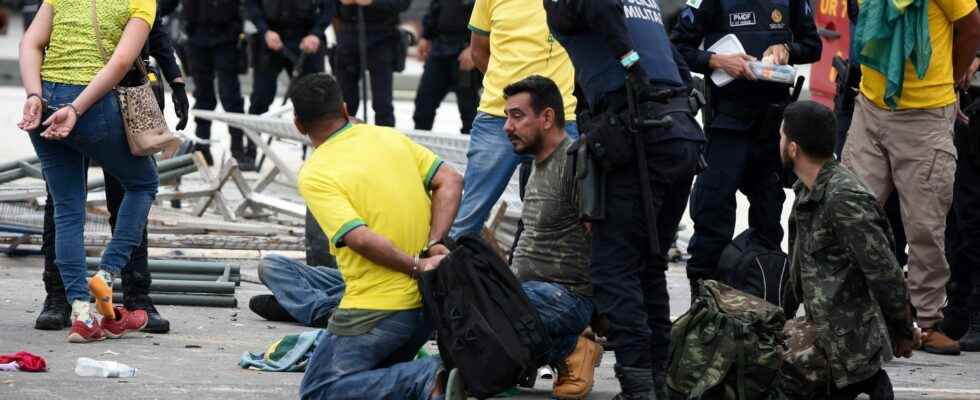Despite Pelé’s smile (1940-2022), the musicality of bossa nova and the sensuality of its tracks, Brazilian society has long been imbued with a deep “culture of violence” that contradicts the “myth of the three races”. , a concept forged in the 19th century according to which whites, blacks and Amerindians would live together in harmony and on an equal footing. However, one cannot escape from what is obvious: Sunday January 8, among the Bolsonarist horde which, in Brasilia, made democracy falter for a few hours, the white middle class was largely over-represented.
This story comes from afar. From the 16th century, Brazil imported 3.6 million Africans and reduced to the condition of subhumans at least 6 million black men and women. Absolute champion of triangular trade, it is also the last Western country to abolish slavery, in 1888. This does not mean, far from it, the end of social apartheid between rich and poor, between whites and non-whites. The culture of violence is also spreading in the army. In the following decades, this one – impregnated with positivist philosophy, whose slogan appears on the national flag: “Order and Progress” – suppresses several regional rebellions. Admittedly, the military preserves national unity, but at the cost of ruthless repression. Shortly after, in 1932 in São Paulo, the integralist movement arose, an authentic local “subsidiary” of European fascism in an expanding metropolis, where Italian immigration was preponderant.
Although dissolved in 1937, the Brazilian Integralist Action (Christian, anti-Semitic, anti-Communist, anti-liberal movement) still permeates memories when, in 1964, the military came to power. Founder of the party, the theologian Plinio Salgado (died in 1975) then still held a seat as a deputy. Certainly less murderous than the Argentine dictatorship, that of Brazil sets a longevity record in the region: twenty-one years. If they kill less than in Chile, the henchmen of the regime torture cheerfully. Future collaborator of Lula and president elected in 2011, the young Dilma Rousseff is one of the victims, traumatized for life.
After the return of democracy in 1985, no “memory work” worthy of the name will be carried out on the dictatorial period. This explains why, in 2016, MP Bolsonaro allowed himself to pay tribute – within the walls of Congress! – to Colonel Ultra, a famous torturer. It is in this disastrous chronology that the brief insurrection of Brasilia, capital of a country in crisis that was believed to be cordial and peaceful, took place on Sunday. Wrongly.
